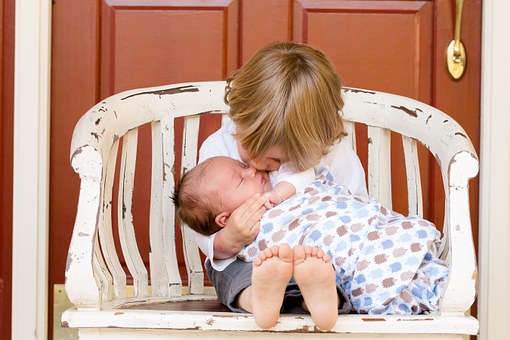How do we explain how family members can be so different? We are the products of our genetic baggage and our environment.
“When they were little, they played together so well that I was convinced they would make a good team later on.”
“He’s my brother, but we think differently and have different values and different personalities. In fact, I have the impression that I would get along better with a stranger.”
Several parents dream of forming partnerships with their children, and of seeing them working together in the family business harmoniously, but sometimes, between dream and reality lies a nightmare. It seems that the marriage of business and family is not always as happy as we would like- on both the economic and the relationship level. Betting on the success of an association solely because we are members of the same family is far from being a sure thing.
Let’s use nature as an example:
Our temperament is like a seed
We are born with a basic temperament. We have a unique seed. That is why, for example, a baby can be very nervous while his sister or brother is very calm. Our genetic baggage partially influences our predisposition to like certain things, our IQs and the totality of what later constitutes our personalities. At birth, we already carry the kernel of corn, wheat or barley in us.
Our environment is like the soil
The immediate environment influences the individual’s development just as the soil acts on plant development.
Soil quality or characteristics may vary in the same field
Contrary to popular belief, the immediate environment is not identical for children in the same family. In one field, you can find certain areas where the soil drains better or the ground is more clay or sandier, and this is not to mention pH and nutritional variations. Parents do not act in an identical way with all their children. In fact, each child is different and evokes different emotions and reactions from his or her parents. As with your land, the various soil characteristics may not provide the same conditions for all plants, and the immediate environment does not provide the same conditions for each child.
Each plant has different growing needs
The children in a family soon go through and choose very different experiences throughout their lives, first of all because they have different values and interests but also because they have different opportunities. As all varieties of plants have different growing needs, children also have different needs. That is why, like some plants in a field, some children will manage to meet their needs while, for others, the soil will not be rich enough.
Each plant assimilates soil elements differently
Lastly, to complicate things, one event may be interpreted very differently. Let’s take the example of two corn plants side-by-side: one will be able to better assimilate and take advantage of the soil in order to develop to full maturity, while the other plant, although under the same conditions, will remain frail until maturity.
As agricultural producers, when we look at our progeny, we have to remind ourselves of nature’s teachings. Therefore, when you wonder about the differences in your family, consider Mother Nature and your harvests. Remember that, even though you try to plan the harvest, the results are sometimes different from your expectations. There are limits to influencing and modeling children according to our expectations and dreams. We cannot genetically modify our progeny. In conclusion, remember that Mother Nature still has the last word.
Pierrette Desrosiers,
Work Psychologist, professionnal speaker, author and business coach




